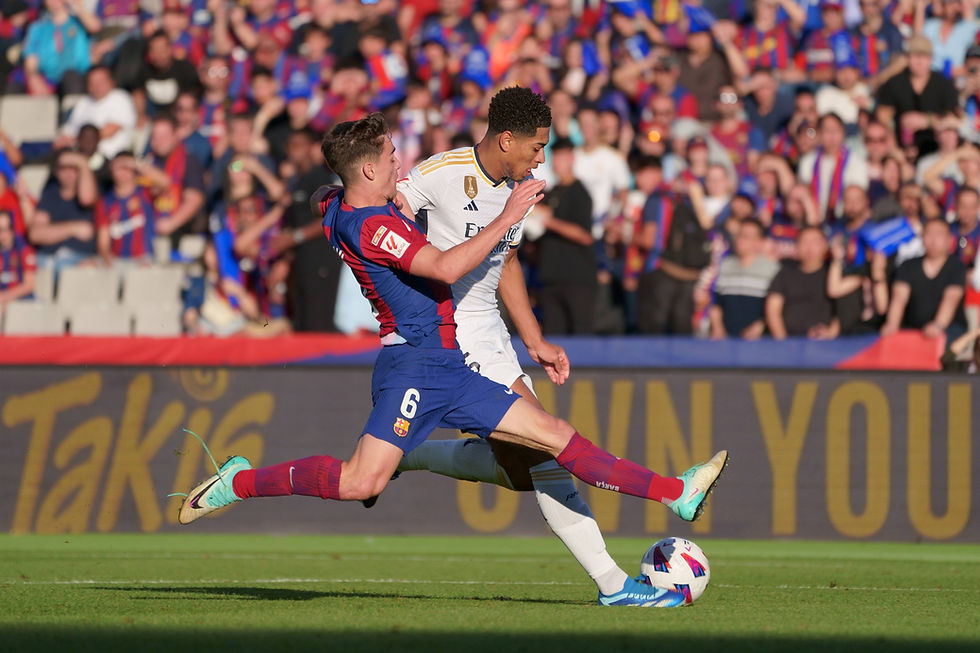NWSL’s Rebirth in Boston: From Breakers to Believers
- Madison Greco
- Nov 3, 2023
- 4 min read

The city of Boston arguably has one of the best sports fanbases in the country. While their beloved Red Sox, Celtics, Patriots, and Bruins are the powerhouses in the city, there is another sport thriving in this market: soccer. The New England Revolution, a Major League Soccer franchise, has distinctively carved out its niche in New England’s sports culture. While the Revs have not always grabbed the headlines in the city dominated by the other successful franchises, the team’s persistence and resilience have contributed to the growth of teams that find themselves lower in the landscape. However, it’s not just the men’s game that captures the hearts of Bostonians; the city’s sports culture is embracing change with the exciting rebirth of the National Women’s Soccer League ("NWSL") in Boston.
The Boston Breakers women’s soccer team was founded in 2000 and was one of eight original women’s professional soccer teams in the United States. The team began their venture in the Women’s United Soccer Association and went on to be original members of two more startup leagues. Over the years, the franchise had struggled with its marketing and business model, and despite their relentless efforts to save the team, the franchise folded in January 2018. [1]
The closure of the Boston Breakers raised questions about the challenges that women’s professional sports teams often face, including financial sustainability, stadium issues, and a competitive landscape that demanded consistent success to thrive.
When franchises as such initially fold, several legal considerations come in to play. These include addressing contractual obligations with players, coaches, and staff, and the termination or modification of existing leases, sponsorships, and intellectual property rights associated with the team's branding. League-specific rules and approval would also be essential, as any intent to rejoin a soccer league would require adhering to league regulations, demonstrating financial stability, and potentially negotiating a new franchise agreement. Legal matters related to a new venue would also play a crucial role in navigating the complex legal waters to ensure a successful revival of the team.
According to the “Expansion Team Player Acquisition Rules” through the NWSL, the Expansion Teams are subject to a specific set of guidelines to build their initial season rosters. The expansion teams have timelines for activities such as discovering and transferring players and guidelines for the asset selection process, including priority selection in the Expansion Draft and the next season’s NWSL Draft, and waiver wire, distribution, and discovery priority. [2]
The popularity of women’s professional soccer in the United States has seen a remarkable surge in the wake of the U.S. Women’s National Team’s World Cup championships. The dominant victories and spirit displayed by the team have inspired a new generation of female athletes and captured the hearts of fans across the nation. The surge in popularity has led to greater television viewership, larger attendance at women’s games, and heightened recognition of women’s soccer players as influential figures both on and off the field. The team’s achievements have not only elevated the sport but have also advanced the conversation of gender equity and equal opportunities in sports, fostering a brighter future for women’s soccer in the United States.
This foundation was just the beginning of the rebirth of NWSL in Boston. The city was awarded expansion rights for the league’s 15th team in September 2023 which is set to kick off in the 2026 season. The team is owned by Boston Unity Soccer Partners (BUSC), which represents a significant development in the world of professional sports. BUSC is led by a diverse all-female ownership group that was founded to promote women’s sports at all levels. The owners include Jennifer Epstein, Juno Equity Founder, and Boston Celtics Minority owner; Stephanie Connaughton, marketer and brand builder; Ami Danoff, Women’s Foundation of Boston Co-Founder and CFO; and Anna Palmer, Flybridge Capital General Partner. All women have deep ties to New England and share the passion for creating and maintaining opportunities for women in sports. The ownership represents a powerful symbol of the enduring strength and potential of women in the sports world. [3]
The franchise has ambitions to partner with the City of Boston and the Boston Public Schools to modernize George R. White Stadium in the heart of the historic Franklin Park. This is not only a testament to their commitment to the growth of women’s soccer, but also a symbol of their dedication to community development. The modernization initiative not only prepares the venue for NWSL play but also brings significant benefits to the students and surrounding communities in Boston. The project will provide access to high-quality athletic facilities while preserving the heritage of the beloved Franklin Park – showcasing the impact of the game in the heart of Boston. BUSC plans to unveil the club’s brand as it moves closer to play in 2026. [4]
The history of women’s soccer in Boston has been both challenging and inspiring. With the dedicated support of Boston’s passionate sports community and the commitment of an all-female ownership team, the NWSL’s return to Boston stands as a beacon of opportunity, equality, and empowerment, exemplifying the ever-evolving landscape of women’s sports.
Sources:
[1] https://www.bostonglobe.com/2023/09/18/sports/nwsl-boston-breakers/
[2] https://nwslboston.com
[3] Id.
[4] Id.
Madison Greco is a second-year law student at Suffolk University Law School in Boston. She can be found on Twitter @mtgreco_ and LinkedIn (Madison Greco).



